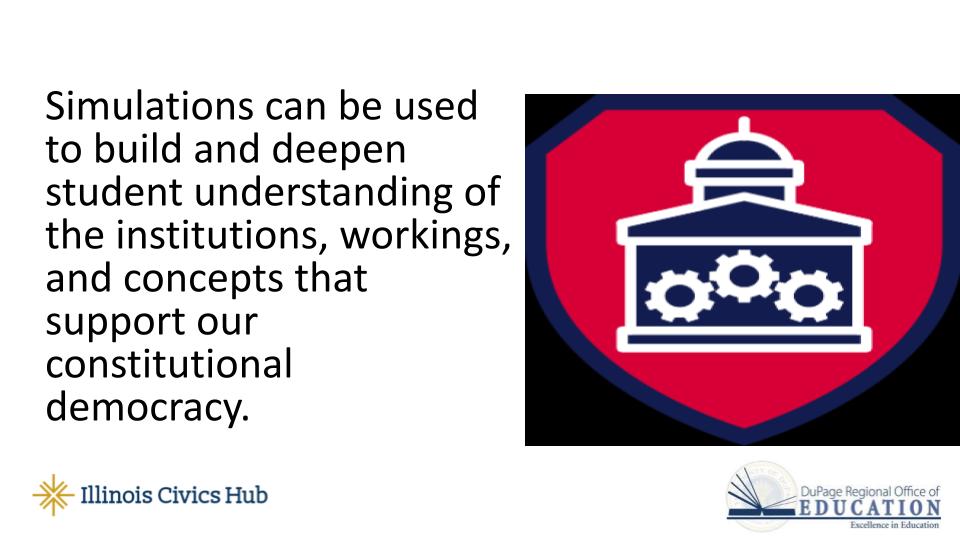Classroom Simulations: Do This, Not That

The Illinois middle and high school civics course requirements require the use of simulations of democratic processes in the classroom. As the Guardians of Democracy Report states:
…young people can also practice citizenship by playing roles in simulations. Games and other simulations contribute to civic learning by allowing young people to act in fictional environments in ways that would be impossible for them in the real world; for example, they can play the role of president of the United States or an ambassador to the United Nations. Games and simulations can be constructed so as to be highly engaging and motivating while also requiring advanced academic skills and constructive interaction with other students under challenging circumstances. (p. 34)
The Guardians report further explains:
New research suggests that game narratives are beneficial to students in their ability to provide motivation and real-time feedback. Games and simulations teach both civic skills and skills that are broadly applicable. As school and district leaders look to provide their students with well-rounded civic learning, simulations of democratic processes are powerful tools. (p.34)
Despite the evidence in support of the use of simulations in the classroom, many educators hesitate in using this proven practice of civic education because they see implementation as difficult given logistics, time, and student background knowledge. In addition, news reports of the misuse of simulations to reenact settled issues or traumatic events make some teachers wary.
This week, the Illinois Civics Hub (ICH) hosted a webinar to facilitate the use of simulations in the classroom. The webinar, Classroom Simulations: Do This, Not That, illustrated that simulations can:
- vary in time commitment, size, scope, and purpose.
- teach content, create a demand for content, and assess mastery of content.
- provide students with a deeper understanding of how the democratic institutions in our constitutional republic work.
- facilitate the civic proven practice of informed action through service learning.
The webinar provided free resources and strategies to illustrate each of the “teacher moves” delineated in the Pedagogy Companion of the new Educating for Democracy Roadmap to support the practice of constitutional democracy & student agency. A recording of the webinar can be found on the ICH Webinar Archive.
To learn more about the use of simulations of democratic processes, educators can access the ICH Curriculum Design Toolkit on this proven practice of civic education. For deeper learning, educators can take the Guardians of Democracy Microcredential Course on Simulations of Democratic Processes. Visit Guardians of Democracy Teachers for more information.
The Illinois Civics Hub is hosting free after-school PD this fall from the News Literacy Project, the Stanford History Education Group, and Civic Engagement Research Group, and more! A description for each webinar and information to register for professional development credits through the DuPage Regional Office of Education is available on the Illinois Civics Hub Professional Development Calendar.
